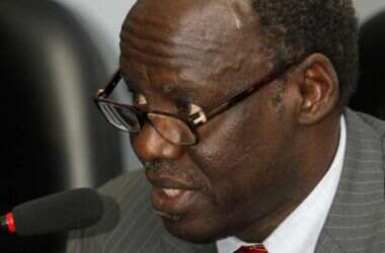S. Sudan’s political parties divided over conditions for talks
August 19, 2014 (JUBA) – The leadership of South Sudanese political parties taking part in peace talks between the two warring parties is sharply divided amid reports that some of the members may have acted under pressure from the government delegation.

As such, four members of the alliance of 18 political parties have already announced their withdrawal from participation in the talks unless the government delegation returned to the negotiating table.
Those who withdrew from the talks include, Martin Tako Moyi, chairman of United Democratic Salvation Front, Bishop Gabriel Roric Jur, a member of the National Congress Party in South Sudan, Wilson Lodiong Sebit, the vice-president for African Nation Congress and James Aniceto Batikayo, the chairman of National Democratic Front.
“Today 18, some members of the political parties’ delegation to the Addis baba peace talks pulled out of the talks. The excuse they gave is that the leader of our delegation together with others met the leader of the SPLM/A in opposition,” partly reads a statement obtained by Sudan Tribune.
The release, which bears the name of Lam Akol, the leader of the opposition parties at the talks, Ismail Suleiman Saeed, Albino John Lako Awan, James Mabor Gatkuoth and Justin Ambago Ramba, asserted that Akol was acting in accordance with the result of the meeting of the delegation of the political parties, which took place on 15 August, where the parties came up with strategies vowing to ensure the warring parties allow multi-stakeholders format of talks.
“This is a wild claim. If that was the reason for pulling out of the delegation, they should have raised the matter in a meet of the delegation. They never did. Instead, what we saw was suspicious activities from their side which never escaped our attention”, the statement adds.
It further explained that it was not the first for the delegation of the political parties to meet with other stakeholders as it was agreed by its leadership on arrival to the venue of the talks.
“It will be recalled that when the launching of the 4th session phase II of the talks could not kick off when the delegation of SPLM/A in Opposition stayed away on the 16th and 20th of June, it was resolved that a team made up of the leaders of delegation of the four non warring stakeholders meet the leader of the SPLM/A in opposition to persuade him to let his delegation join the talks,” the group explained.
“These colleagues of ours never objected to the idea then. Our delegation did brief the political parties about the 4th session including this matter in a meeting held in Juba on the 26th June, 2014. The report of the delegation was adopted. In our opening statement on the launching the talks on the 20th of June we made it clear that our delegation was ready to engage all the stakeholders either singly or collectively,” further says the statement.
The parties also wondered why the two main rivals in the conflict wanted them excluded from the talks aimed at resolving the crisis.
They accused the government delegation of being behind the division within their leadership, claiming that they were undecided on what mechanism would best resolve the eight month-old conflict.
“This is definitely the work of the government delegation, especially [Michael] Makuei and Joseph Ukel. They have never been happy with us from the moment we had a position paper on the peace talks. They just want us to be following the government without opinion”, the group claimed.
“They started to work hard to dismantle our group. This is the background to the defection of the four. They were threatened with dismissal either personally or the ministers of their parties or denial of any possible future ministerial positions”, the opposition leaders added.
DIVERGENT INTERESTS
But Tako, one of the four officials who announced pulling out from the talks on Monday, said they withdrew from the talks having discovered that some of their colleagues were working with other stakeholders to allegedly to overthrow the elected government.
“We have discovered that some of our members, especially the leader of our delegation is involved in dubious activities. It appears they are working to overthrow the government by collaborating with other stakeholders. The leader met the leader of SPLM/A in opposition without our knowledge. We warned him to stop otherwise we will have to select another leader. We came for peace and not to be involved in activities which are against peace”, Tako, also the deputy environment minister, told SSTV on Tuesday.
Bishop Roric Jur, on the other hand, said they withdrew from the talks because the government delegation had withdrawn from the talks and therefore could not continue because they were not fighting.
“We actually came to help the two main parties because they are the ones carrying guns on the ground and this is why fighting is continuing. If they have not agreed to stop fighting, the peace we are noting here will not work because it will not be implemented on the ground,” said the cleric.
“So we say the two parties agree on the cessation of hostilities”, he added.
(ST)
